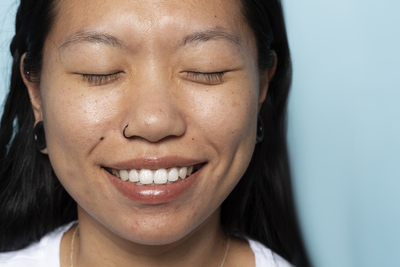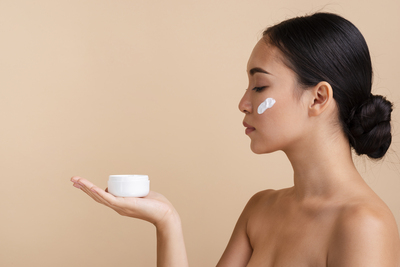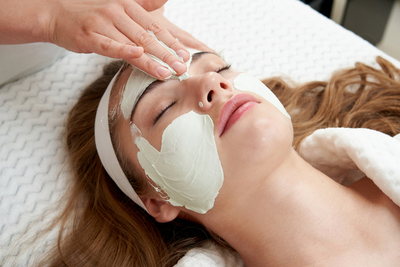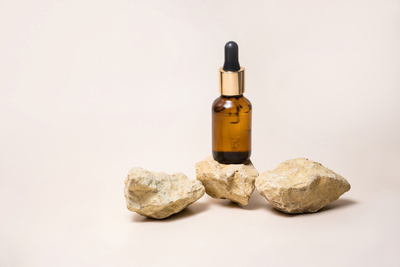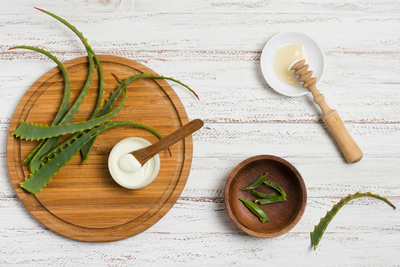Sensitive Skin Survival Guide: Do’s & Don’ts
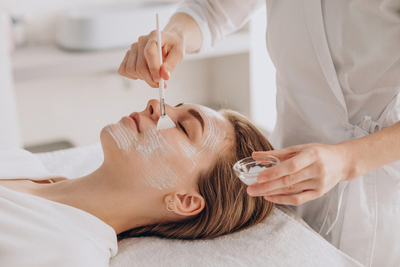
Many of us have sensitive skin, especially today, in times of environmental crisis. Sensitive skin may not be noticeable to others, but its owner may feel severe discomfort. It instantly reacts to any stress factor - from lack of sleep to changing a pillowcase or a new product in daily care.
Now, let’s take a closer look at how to make your sensitive skin much healthier and what mistakes to avoid.
Why Does Skin Become Sensitive?
External factors:
- Air pollution – living in dusty and smoky regions;
- Using products that aren’t designed for sensitive skin;
- Mistakes in choosing foundations, powders, shadows, etc. They shouldn’t contain aggressive components;
- Weather conditions.
Internal reasons:
- Poor nutrition and lack of vitamins and minerals in the body;
- The period of seasonal allergies, when the entire body is much weaker;
- Constant stress;
- Problems in the functioning of the sebaceous glands.
How To Care For Sensitive Skin?
It is impossible to overcome the problem of excessive sensitivity once and for all. What is sensitive skin? This is something you will have to coexist with. So it’s best to focus on picking up products that would strengthen and restore the epidermis on a regular basis.
Main Do’s
- Sensitive skin cleanser. For this, use soft milk or foam. Pay attention to hydrophilic oil as it doesn’t require cotton pads and friction. Facial gel with aloe can be useful because of its anti-inflammatory effect;
- Toning without alcohol and acids. Such cosmetics won’t dry out the skin or increase its flaking. A proper tonic will restore the acid-base balance after the cleansing stage;
- Nutrition and hydration. It is important that cells and tissues are restored and strengthened in a timely manner. Essential oils and extracts, as well as amino acids and Omega-3.6 fatty acids, can be super handy;
- The best sunscreen for sensitive skin should be selected within the recommendations for your region;
- Night care is aimed at regeneration and restoration. Apply creams and serums containing glycerin, aloe, vitamin E, and essential oils. Also, consider panthenol, hyaluronic acid, ceramides and squalane;
- Reducing the influence of irritants. Use thermal water or soothing facial gels throughout the day to relieve sensitivity.
Basically, products with natural ingredients that don’t contain strong fragrances are best suited for a sensitive skin care routine. They may contain soothing and regenerating components: panthenol, natural oils and vitamin complexes.
Main Don’ts
- Harsh skin cleansing. If you feel tightness and discomfort after using a cleanser or toner for sensitive skin, they are too aggressive for you. The same applies to scrubs with large and overly hard abrasive particles that can injure the skin;
- Cleansing the skin with too cold or hot water isn’t recommended since temperature changes can be traumatic for it; Cosmetic procedures that injure the epidermis. Injections and lasers can only create new problems. It is better to give preference to a gentle massage;
- Sensitive skin products shouldn’t contain mineral and synthetic oils - their use will negatively affect the hydrolipid layer and lead to loss of moisture. Vitamin A increases the skin's vulnerability to sunlight, so it should be avoided as well.
Selecting products for sensitive skin can take twice as long. But luckily, you don’t need to thoroughly check the ingredients lists of every skincare product for possible irritants. Simply select 'sensitivity' as a skin concern in your SkinBuddy profile.
Find a product you are interested in our database, and check if it contains any potential irritants or allergens.
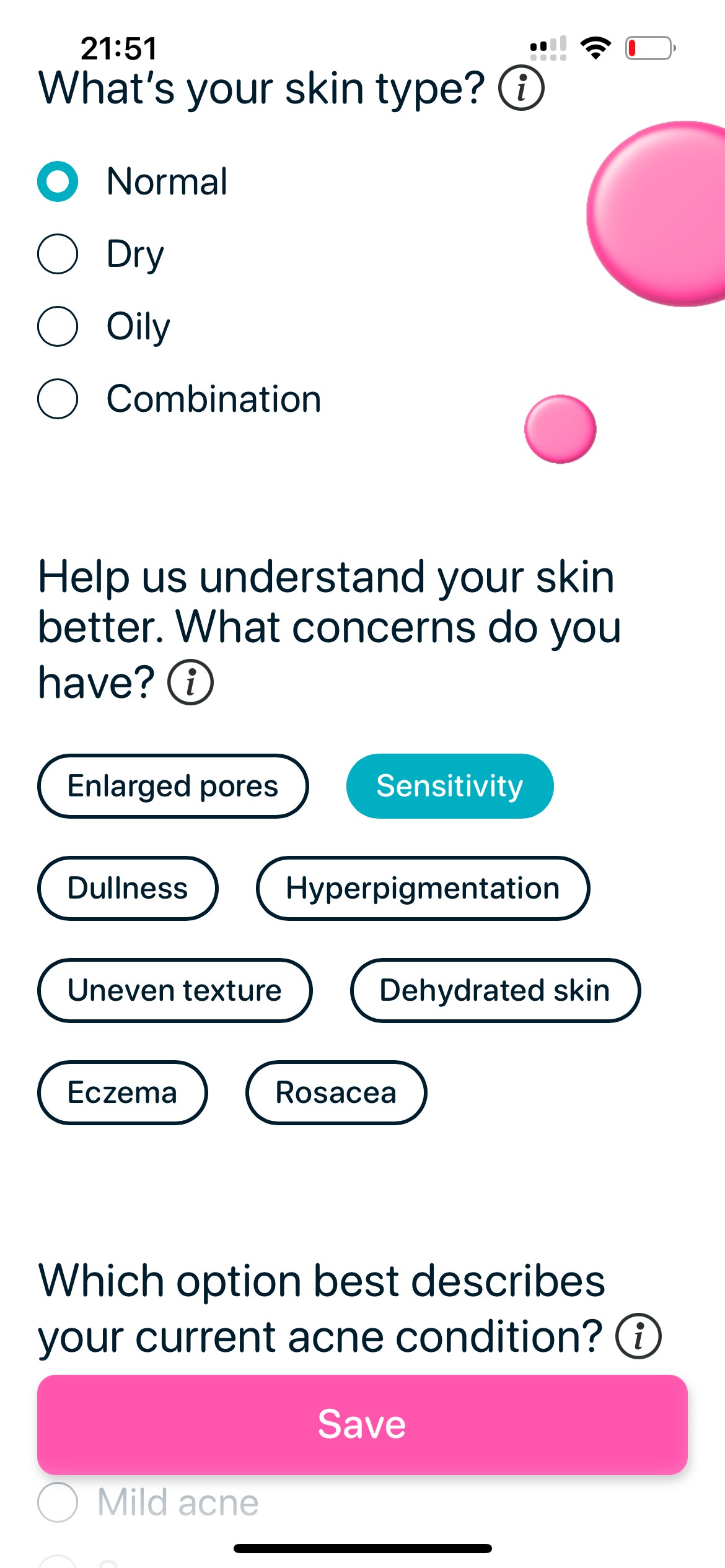
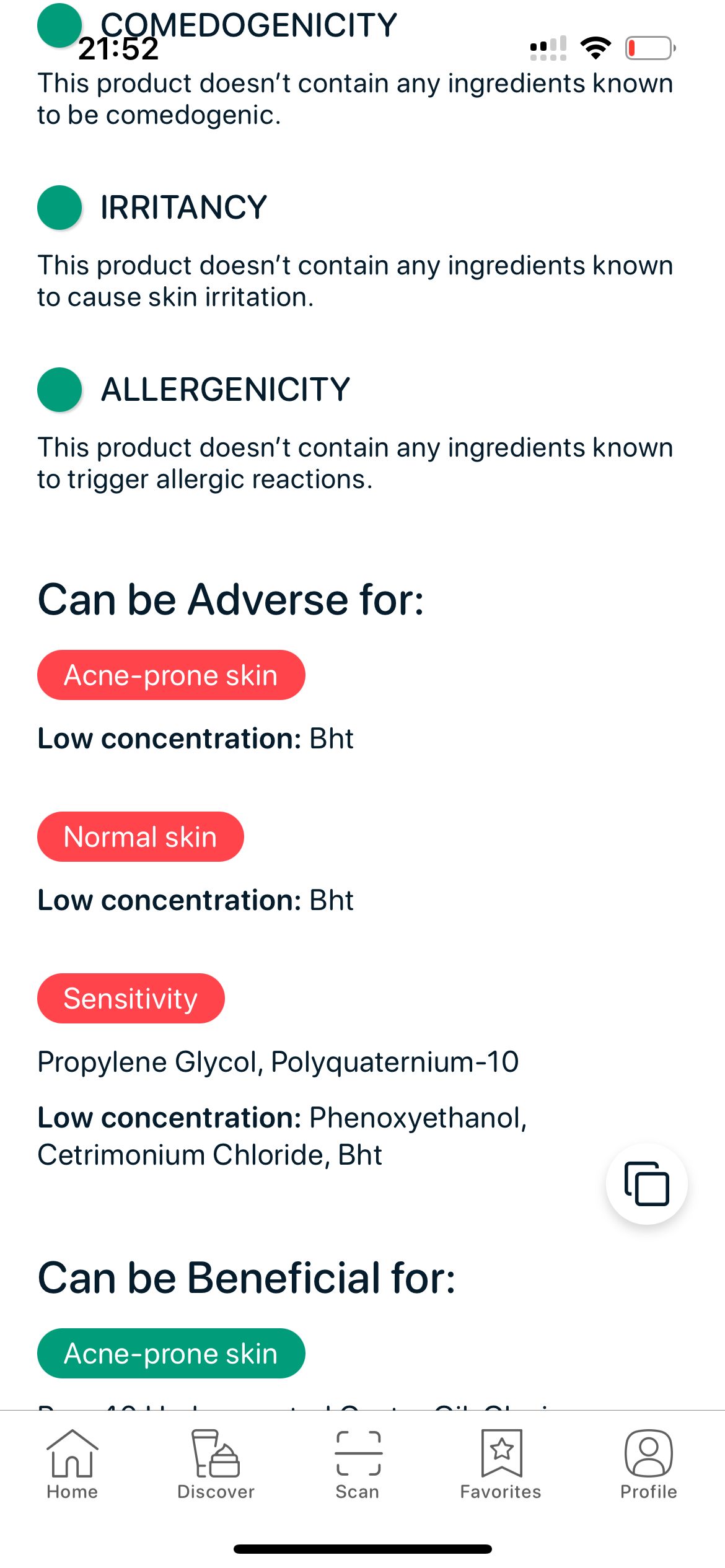
Try SkinBuddy to find out what works for your skin, and what doesn’t.
Scan your skincare, avoid pore-clogging or irritating ingredients, and discover smarter product matches. Open the web app or download the mobile app to get started.
or
Check Products OnlineCheck if your skincare suits your skin type, sensitivity, or acne-prone needs at skinbuddy.app and discover better options that match your routine and goals. SkinBuddy makes it easy, fast, and science-backed.
Scan to get started:

Web App (mobile only)

App Store & Google Play
Can Acids And Retinol Be Used?
This question should be approached individually, since everyone's skin is different - there is no right answer to this question. Much depends on the product's components, their concentration and the condition of the skin.
If the skin is very sensitive and prone to irritation, then avoid everything that irritates it. If, on the contrary, the hydrolipidic barrier is restored and the skin is hydrated and not hypersensitive, then gentle acids and low concentrations of retinoids can be introduced for sensitive skin care.
In fact, it’s best to consult a professional to discover products that suit you best. Next, you can go on SkinBuddy and mention your skin concerns. The system will quickly pick up sensitive skin products for face according to your specific request. Just a couple of clicks and voila - the daily skin care of your dreams is already chosen!
References
- Jacoby, S. (2019, August 27). 7 Derm-Approved Tips to Make Life With Sensitive Skin a Little Bit Easier. Self. https://www.self.com/story/sensitive-skin-care-tips
- Covington, M. (2023, April 7). Caring For Sensitive Skin Tips + Ultimate Skin Care Regimen. Westlake Dermatology https://www.westlakedermatology.com/blog/sensitive-skin
- 5 Skincare Mistakes To Avoid For Sensitive Skin. (2021, April 17). Herbal Dynamics Beauty. https://www.herbaldynamicsbeauty.com/blogs/herbal-dynamics-beauty/5-skincare-mistakes-to-avoid-for-sensitive-skin
- Jaliman, D. (2022, November 16). 20 Common Questions About Sensitive Skin. WebMD https://www.webmd.com/beauty/sensitive-skin-20-questions



